The Need for Sustainable Alternatives to Wood Products
indowud2024-10-21T11:51:48+00:00In today’s rapidly changing world, the construction and design industries face a growing dilemma: how to innovate while still preserving the planet. Traditional wood products have long been the go-to material for interior furnishing, joinery, and building facades. However, the environmental and health costs associated with these materials are becoming impossible to ignore. From deforestation to toxic emissions, traditional wood materials contribute to environmental degradation and pose significant risks to human health.
The search for sustainable alternatives is no longer a niche concern; it’s a global priority. That’s where Indowud NFC comes in—an innovative, eco-friendly solution that offers the durability and versatility of wood-based products without harming the environment. Made from agricultural residuals like rice husk, Indowud NFC provides a long-lasting, non-toxic alternative for both interior and exterior applications, paving the way for a healthier and greener future in construction.
The Hidden Dangers of Traditional Wood Products
Traditional wood products, such as plywood, MDF, and particle boards, may seem like reliable materials for construction and interior use, but their hidden dangers make them less ideal in today’s sustainability-driven world. These products not only contribute to deforestation, but their production also involves the use of harmful chemicals like formaldehyde, melamine, and urea, which are used to bond wood particles. Over time, these chemicals release volatile organic compounds (VOCs) into the air, which can cause significant health issues, including respiratory problems and even cancer.
The air inside homes and offices where these wood products are used can become polluted with these emissions, creating a toxic environment for occupants. With indoor air quality being a significant factor in health, continued exposure to VOCs is linked to long-term health risks, including an increased likelihood of cancer, especially with chemicals like formaldehyde being classified as a carcinogen. The situation becomes even more alarming in closed spaces, where air circulation is limited, intensifying the risk.
In addition to health concerns, wood products are often treated with insecticides and preservatives to prevent termite or insect damage, further adding to the indoor pollution. These issues highlight the urgent need for safer, eco-friendly alternatives that don’t sacrifice health for durability.
Deforestation and Its Impact on the Environment
Deforestation is one of the most pressing environmental challenges we face today, driven largely by the demand for wood-based products. The widespread cutting of trees for materials like plywood and MDF results in the loss of critical forests, which serve as the planet’s natural carbon sinks. Trees absorb carbon dioxide from the atmosphere, helping to regulate the climate. When forests are cut down, not only is this carbon absorption halted, but the stored carbon is also released back into the atmosphere, accelerating climate change.
Beyond contributing to global warming, deforestation also disrupts weather patterns, resulting in more frequent and severe natural disasters such as floods, landslides, and droughts. The removal of trees destabilizes the soil, making it prone to erosion and flooding, which directly affects human settlements and agricultural lands.
The destruction of forests further leads to the displacement of wildlife, disrupting ecosystems and pushing many species to the brink of extinction. Forests are home to countless animal species, many of which cannot survive without their natural habitats. As they are displaced, wildlife is forced into human-populated areas, leading to increased human-wildlife conflict and further ecological imbalance.
The urgency to reduce deforestation and its harmful effects is clear, and using sustainable alternatives like Indowud NFC can significantly mitigate this damage. By choosing materials that don’t require tree harvesting, we can preserve biodiversity, stabilize ecosystems, and slow the advance of climate change.
The Invention of Indowud NFC: A Sustainable Breakthrough
Recognizing the extensive environmental damage caused by traditional wood products, Indowud NFC was developed as a revolutionary, sustainable alternative. Indowud NFC is created using agricultural residuals, particularly rice husk, a byproduct of rice farming that is often discarded or burned, contributing to air pollution. This innovative approach turns waste into a valuable resource, eliminating the need for tree harvesting while reducing agricultural waste and preventing harmful emissions from burning.
The development of Indowud NFC was guided by the principles of sustainability and circular economy. By repurposing agricultural byproducts like rice husk, the company reduces the demand for new raw materials, closing the loop between agriculture and manufacturing. Farmers also benefit by selling their residuals, which otherwise would have been wasted, creating a system where both the agricultural and manufacturing sectors thrive.
After extensive research and experimentation, Indowud NFC emerged as a versatile panel product that rivals traditional wood in strength and durability. The material is engineered to meet the high standards of modern construction, offering a wide range of applications for both interior and exterior use. This breakthrough represents a new frontier in building materials, proving that eco-friendly products can be just as robust and reliable as their traditional counterparts.
By opting for Indowud NFC, builders, architects, and homeowners can make a choice that not only improves the aesthetic and structural quality of their projects but also supports the shift toward a more sustainable future.
Sustainability and Health Benefits of Indowud NFC
One of the most compelling reasons to choose Indowud NFC over traditional wood products is its undeniable sustainability. Unlike conventional wood-based materials, which contribute to deforestation and release harmful chemicals during manufacturing and usage, Indowud NFC is produced without cutting down a single tree. Its primary raw material—rice husk—is a renewable resource, ensuring that the environmental footprint of this product remains low from production to end-use.
Moreover, the health benefits of Indowud NFC set it apart from other building materials. Traditional wood products often contain formaldehyde and other toxic binders that release volatile organic compounds (VOCs) into the air, compromising indoor air quality. These emissions can lead to serious health issues, including respiratory problems, allergic reactions, and even cancer over long-term exposure. In contrast, Indowud NFC is completely VOC-free, ensuring that it contributes to a cleaner, healthier living and working environment.
Indowud NFC is also 100% recyclable, which means it does not contribute to landfill waste at the end of its life cycle. Instead of adding to the growing problem of construction waste, Indowud NFC can be repurposed, making it an ideal choice for environmentally conscious projects. Additionally, the product does not pollute air, water, or soil, maintaining its eco-friendly status throughout its lifespan.
Thanks to its commitment to sustainable practices, Indowud NFC has been certified by the Indian Green Building Council (IGBC) and carries the GreenPro eco-label, a mark of its environmental responsibility. Globally, it has earned certifications from EPD International in Sweden and SCS Global Services in the U.S., confirming that it meets stringent international standards for sustainable and eco-friendly products.
Versatile Uses of Indowud NFC for Interior and Exterior Applications
One of the standout qualities of Indowud NFC is its versatility. Whether it’s for residential, commercial, or outdoor spaces, Indowud NFC provides a durable and adaptable solution that caters to a wide range of architectural needs. Its unique composition makes it resistant to many of the challenges that traditional wood products face, such as termites, moisture, and fire, ensuring long-term reliability in diverse environments.
Indowud NFC’s water resistance and non-toxic nature make it an ideal material for interior spaces where moisture or health concerns may be present. It can be used for:
• Wall paneling and ceiling tiles, offering a sleek and sustainable alternative to traditional wood or synthetic materials.
• Flooring, providing a durable, water-resistant option that can handle high-traffic areas while maintaining aesthetic appeal.
• Cabinetry and partitions in kitchens, bathrooms, and offices, where moisture and exposure to chemicals could otherwise degrade wood-based materials over time.
• Bathroom vanities and other furnishings, particularly in seashore or riverfront properties, where moisture is a constant issue.
Its smooth, customizable finish allows it to blend seamlessly into modern, minimalist interiors while offering the strength required for structural elements.
For outdoor use, Indowud NFC is just as effective. It is highly resistant to extreme weather conditions, UV radiation, and humidity, making it an ideal material for:
• Building facades and elevations, providing a high-end aesthetic while offering durability in both hot and cold climates.
• Decking and balcony furnishings, where its water-resistant and termite-proof properties come into play.
• Cladding and fencing, where it maintains its integrity over time, even when exposed to harsh weather conditions.
Another impressive feature of Indowud NFC is its ability to be thermoformed, allowing it to be molded into various shapes and designs. This opens up endless possibilities for creative architecture and design, enabling architects and builders to realize unique structural and decorative elements that are eco-friendly, durable, and aesthetically pleasing.
Furthermore, Indowud NFC is easy to work with using standard woodworking tools and CNC routing, making it a favorite among architects and designers for both functional and artistic projects. Whether it’s for residential homes, commercial buildings, or landscape design, Indowud NFC adapts to various creative visions while standing strong against environmental challenges.
Certifications and Global Recognition of Indowud NFC
Indowud NFC’s commitment to sustainability, safety, and environmental responsibility is backed by a range of prestigious certifications from both national and international organizations. These certifications not only validate the product’s eco-friendly claims but also provide confidence to builders, architects, and environmentally-conscious consumers.
Indian Green Building Council (IGBC) Certification
Indowud NFC is certified by the Indian Green Building Council (IGBC), an authority that promotes sustainable building practices in India. This certification signifies that Indowud NFC meets the highest standards for eco-friendly materials, making it a preferred choice for green building projects. The product also carries the GreenPro eco-label, a mark of environmental responsibility that highlights its contribution to reducing carbon footprints in construction.
EPD International Certification
Internationally, Indowud NFC has been verified by EPD International, a renowned Swedish certification body that evaluates the environmental performance of products. The Environmental Product Declaration (EPD) confirms that Indowud NFC meets strict environmental standards, from sourcing to production and throughout its lifecycle. This certification helps architects and builders choose materials that align with global sustainability goals.
SCS Global Services Certification
In the United States, Indowud NFC has earned certification from SCS Global Services, which assesses products for their impact on environmental health and sustainability. This certification reinforces Indowud NFC’s role as a trusted material in eco-conscious markets worldwide, ensuring that it is a safe, non-toxic choice for indoor environments.
CE and ROHS Certification
Additionally, Indowud NFC holds the CE marking, which indicates its compliance with the European Union’s health, safety, and environmental protection standards. The product is also ROHS-certified, ensuring that it is free from hazardous substances, making it a responsible choice for both residential and commercial applications.
These certifications collectively make Indowud NFC one of the most globally recognized sustainable materials on the market. With endorsements from multiple credible organizations, it assures consumers, builders, and architects that they are choosing a product that not only performs well but also aligns with the highest sustainability and health standards worldwide.
Conclusion: The Future of Sustainable Construction with Indowud NFC
As the world becomes increasingly aware of the environmental and health impacts of traditional wood products, the demand for sustainable building materials continues to rise. Indowud NFC leads the way as an innovative alternative that not only reduces the environmental harm caused by deforestation and toxic chemicals but also offers a solution that is versatile, durable, and eco-friendly.
By utilizing agricultural residuals like rice husk, Indowud NFC represents the future of sustainable construction. Its superior performance in both interior and exterior applications, combined with its certifications from global environmental authorities, makes it a trusted choice for architects, designers, and builders who want to make eco-conscious decisions without compromising on quality.
In choosing Indowud NFC, you’re not just selecting a product—you’re making a commitment to the planet, to healthier living spaces, and to a future where construction and design work in harmony with the environment. As we move toward a greener world, Indowud NFC is paving the way for a construction revolution that is sustainable, innovative, and environmentally responsible.

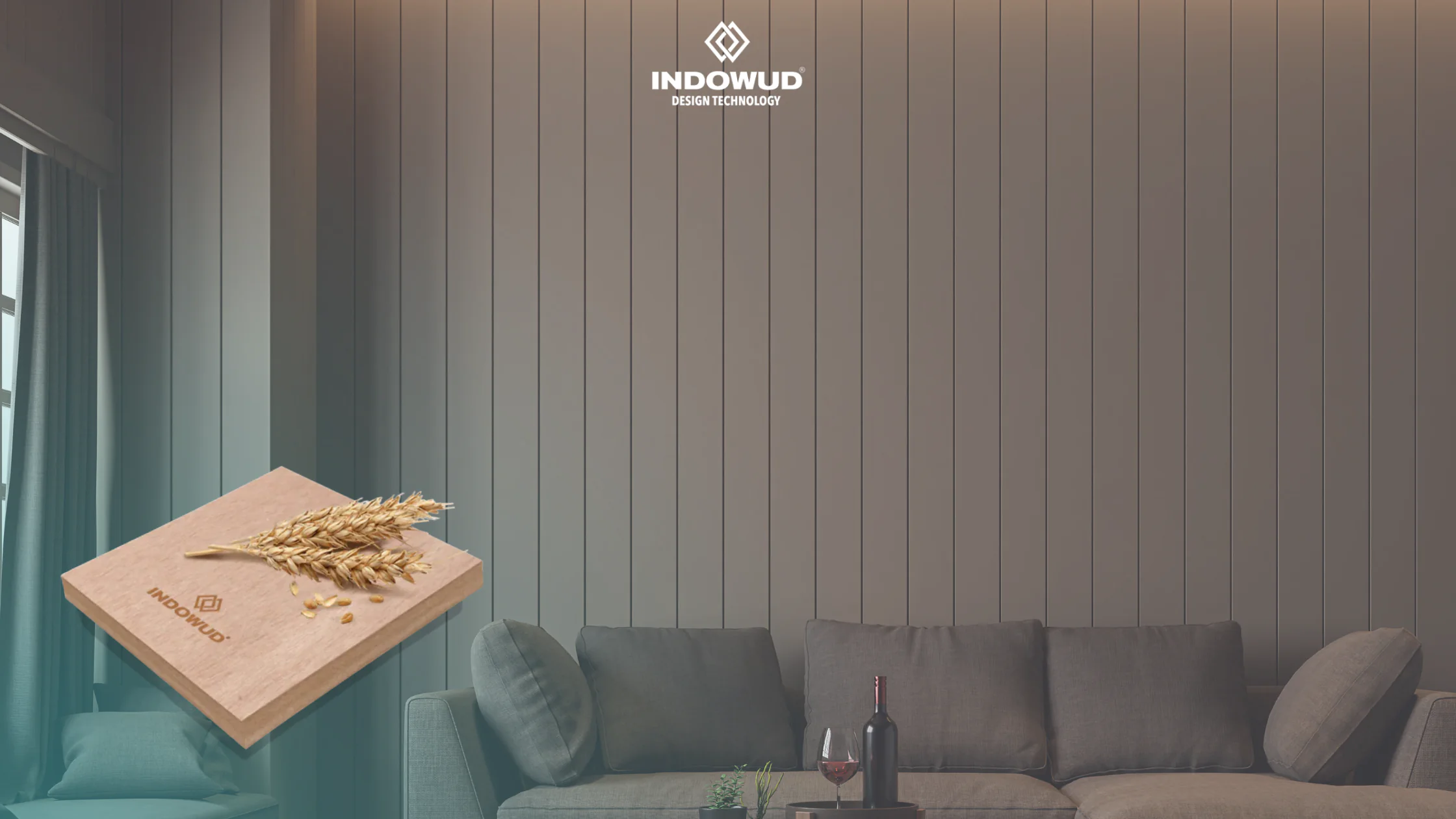
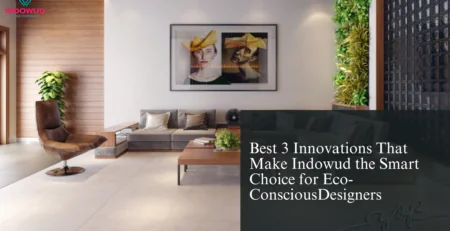
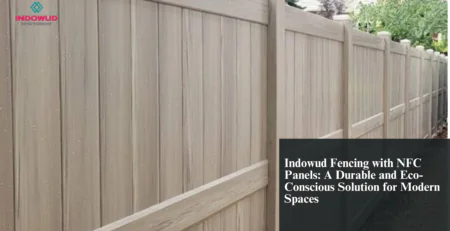

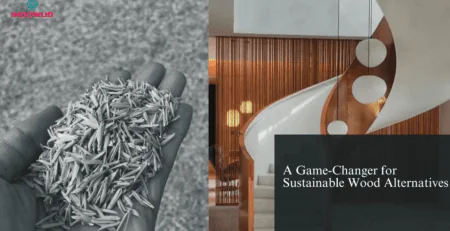

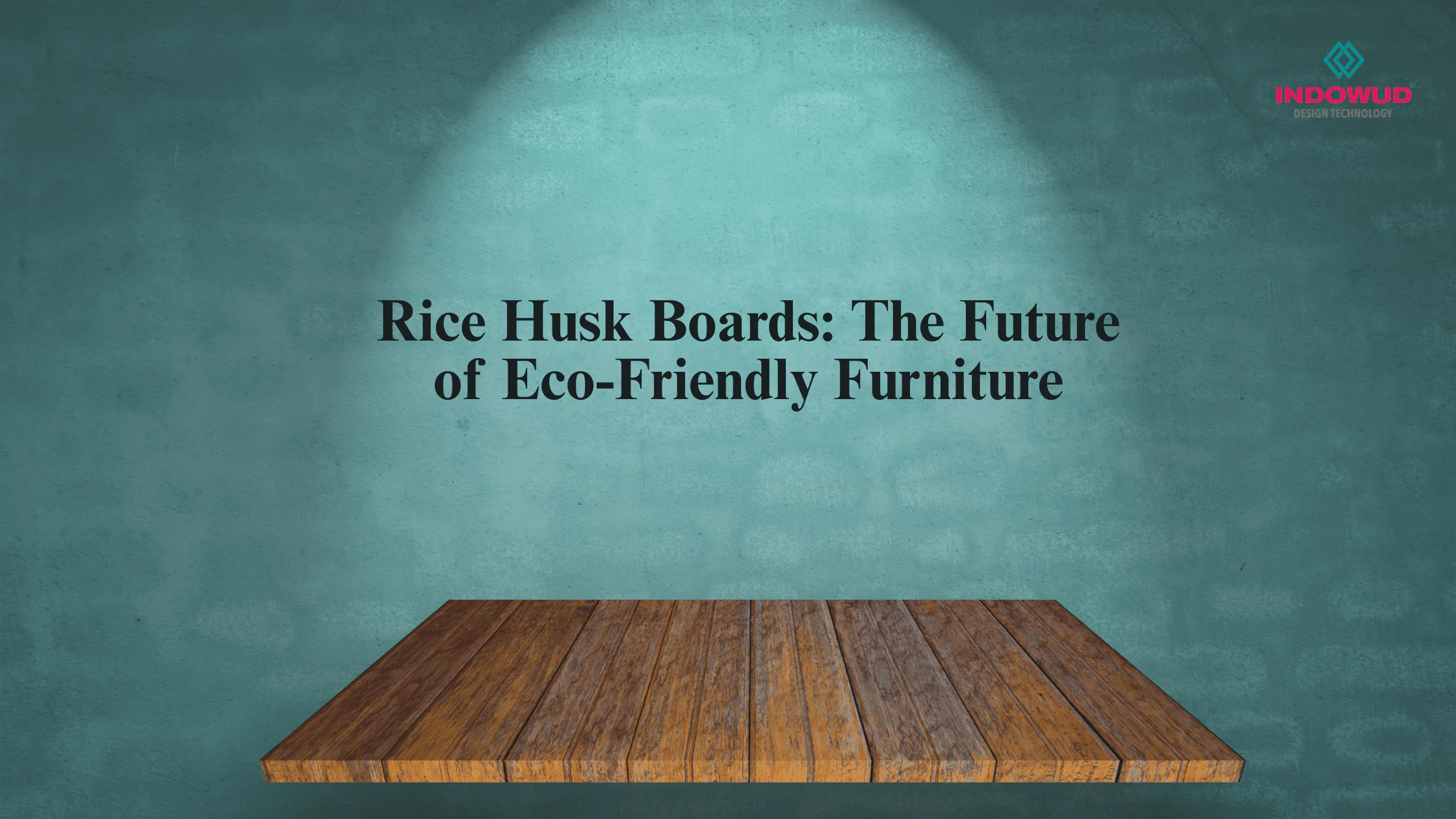
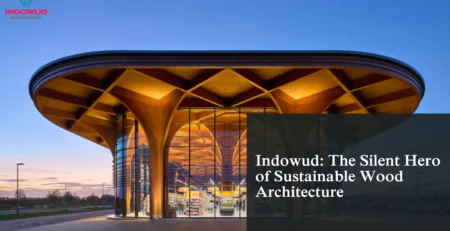

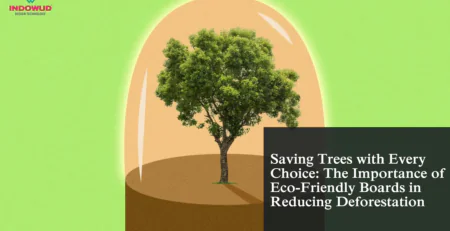
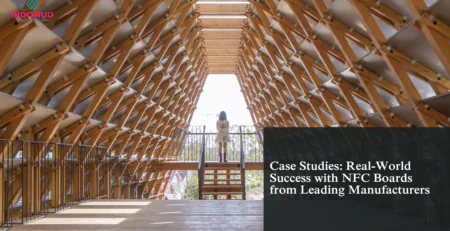
Leave a Reply